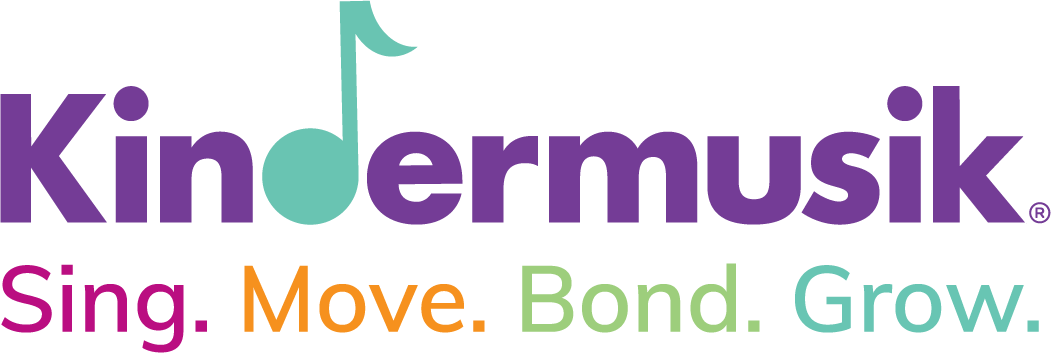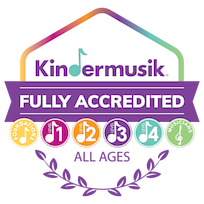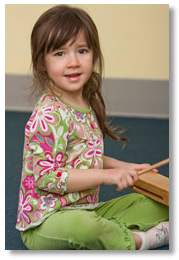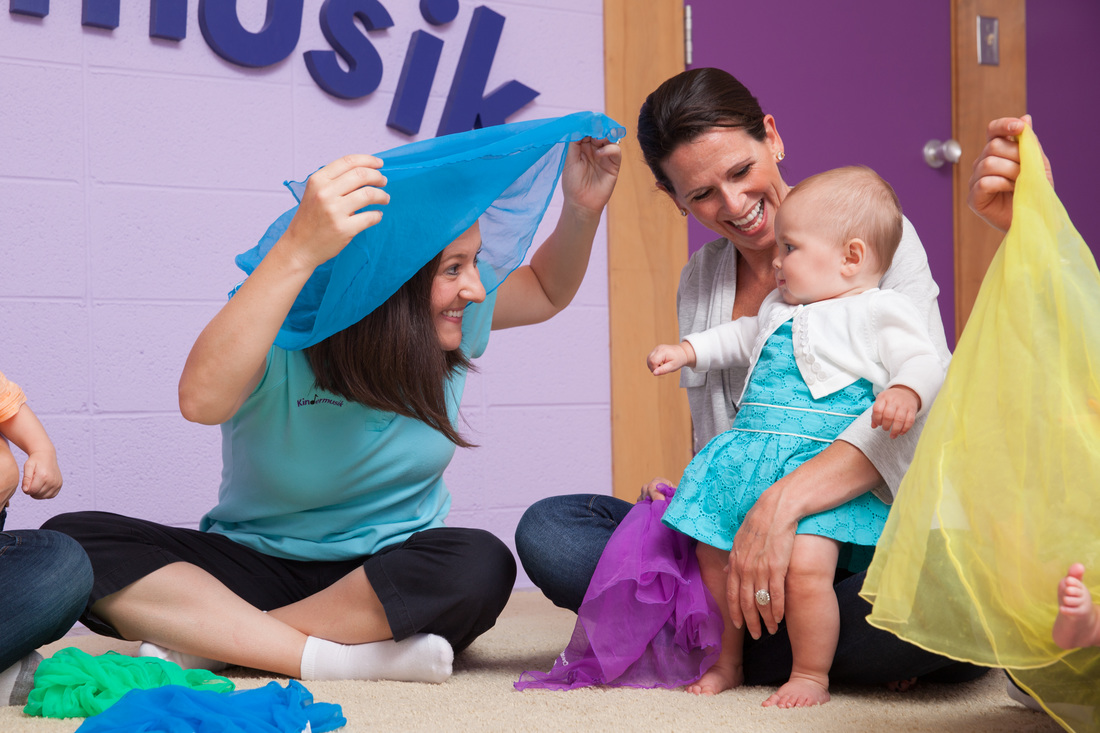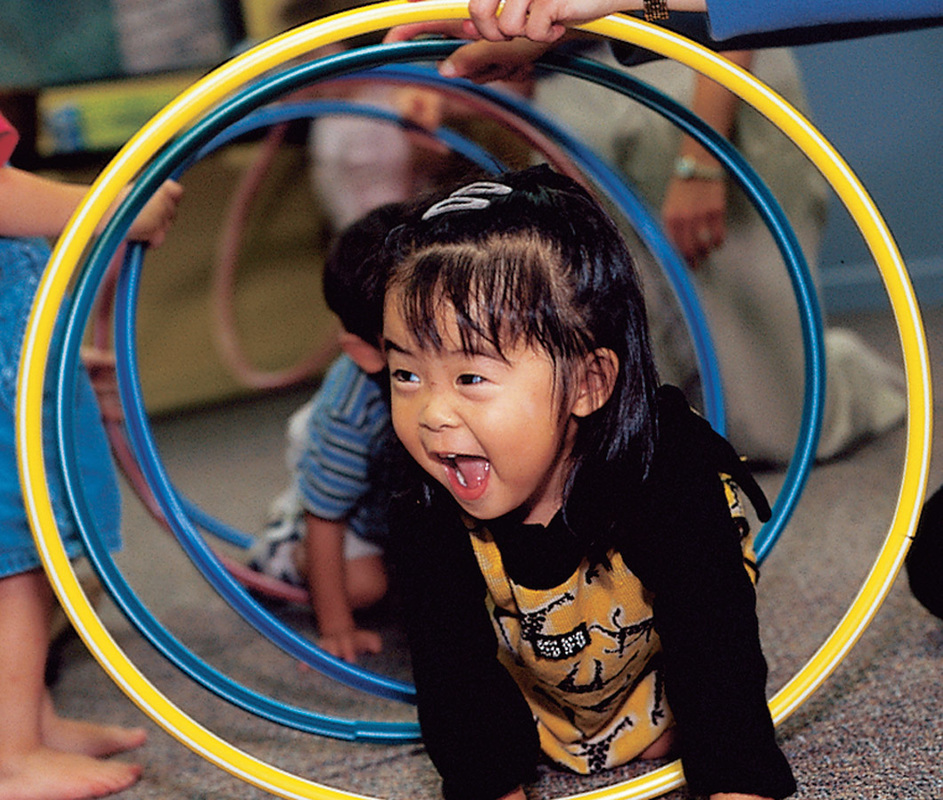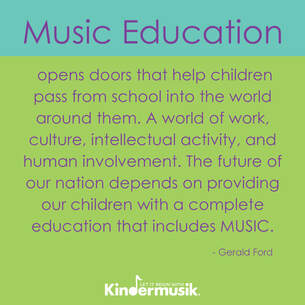
Simply put, Kindermusik is a music and movement program.
Each week in class you’ll play, listen, and dance to music that will impact you and your child in profound ways. That’s because every song, story, and two-step has a carefully chosen purpose in this creative curriculum—one that’s designed to stimulate and strengthen the vital neural wiring taking place in your child’s mind, right now. A Kindermusik educator will guide you every step of the way so you know how each activity contributes to your child’s overall growth and development.
The latest research with proven methods—that’s Kindermusik, too. Our child-centered curricula incorporate ongoing, in-classroom studies with our own, 30-years’ experience in music and child development. Plus, we’ve combined the best music learning methods found in Orff, Kodaly, and Suzuki.
A Kindermusik Kit with books, instruments and a digital album with the songs & chants from class let you take learning with you wherever you go. All while strengthening the emotional bond between you and your child.
So whether it’s twirling under a sea of scarves, experimenting with age-appropriate instruments, singing about a scampering squirrel, creating a musical ensemble, or snuggling in your lap during story time, Kindermusik speaks your child’s language and offers her (and you!) the best music and movement class available.
Each week in class you’ll play, listen, and dance to music that will impact you and your child in profound ways. That’s because every song, story, and two-step has a carefully chosen purpose in this creative curriculum—one that’s designed to stimulate and strengthen the vital neural wiring taking place in your child’s mind, right now. A Kindermusik educator will guide you every step of the way so you know how each activity contributes to your child’s overall growth and development.
The latest research with proven methods—that’s Kindermusik, too. Our child-centered curricula incorporate ongoing, in-classroom studies with our own, 30-years’ experience in music and child development. Plus, we’ve combined the best music learning methods found in Orff, Kodaly, and Suzuki.
A Kindermusik Kit with books, instruments and a digital album with the songs & chants from class let you take learning with you wherever you go. All while strengthening the emotional bond between you and your child.
So whether it’s twirling under a sea of scarves, experimenting with age-appropriate instruments, singing about a scampering squirrel, creating a musical ensemble, or snuggling in your lap during story time, Kindermusik speaks your child’s language and offers her (and you!) the best music and movement class available.
Creative & Musical
Maybe it goes without saying, but Kindermusik classes drive children’s musical development. Our activities are designed to develop vocal skills, foster music appreciation, and build a foundation for formal music instruction later on. In class, children learn to play all kinds of age-appropriate instruments and to appreciate music of varying styles and origin. They learn to recognize and decode musical symbols, and they’re introduced to musical concepts and terms as they play and move presto, largo, allegro, staccato, and legato to a variety of rhythms.
Nurturing children’s creativity and challenging them to come up with new and expressive ways of doing things helps them to become better problem-solvers and more innovative thinkers later in life. Kindermusik class is an incubator for creative expression—it’s a place where children are encouraged to be imaginative, uninhibited, and inventive. During instrument play, children find new ways to make sounds with shakers; in movement activities, they dance expressively to music of varying tempos; and in pretend-play activities, they move like butterflies, imitate bird calls, and pretend to bake cookies! |
Social & Emotional
Healthy social-emotional development includes the ability to form satisfying and positive relationships with others, to exercise self-control, and to experience and navigate a full range of emotions. Studies have shown that healthy social-emotional development in young children correlates closely with cognitive development and academic success in school; and children who display strong self-regulation are better able to control their impulses, pay attention, and work flexibly toward goals.
Kindermusik lessons are thoughtfully crafted to encourage executive function skills, like self-regulation, and to promote healthy social interactions. Children are guided to explore emotions—their own, those of their friends, and those of the characters in the songs and stories they hear. They acquire new skills that build their self-esteem, develop a sense of belonging through community-building rituals, and learn to manage their impulses by following directions and taking instruction. Activities help children experience positive peer interactions by encouraging cooperation, turn-taking, and sharing. |
Physical & Cognitive
There’s no doubt that physical activity is healthy. Exercise builds muscle strength, increases cardiovascular health, and can positively affect mood, self-esteem, and energy level. But getting young children in the habit of moving doesn’t just set them up with good habits for life—it also has real-time developmental benefits. Movement builds fine- and gross-motor skills, develops balance and coordination, and primes the brain for learning.
In Kindermusik class, children bounce, clap, spin, and hop. They build core strength as they dance in a circle and skip around the room; they develop eye-hand coordination as they toss scarves in the air and catch them; and they stimulate their vestibular systems by rocking and swaying to relaxing music. Throughout class, children are asked to respond to aural and visual cues with movement, creating a multisensory learning experience that brings abstract concepts down to a clear, concrete, experiential level. Study after study has shown the positive effects of music education on cognitive development. The study, practice, and discipline of making music gives the brain a workout—it develops and expands neural pathways, forming stronger and more complex communication networks. Music education can build listening and auditory processing skills; promote memory and recall; and strengthen executive function, the set of cognitive abilities that controls planning, organizing, goal formation, and more. In Kindermusik classes, children are introduced to new concepts and topics that help them gain a better understanding of themselves and the world around them. They learn song lyrics and dance routines that test their memory and recall skills, practice focusing on and listening attentively to original stories and unique animal sounds, and learn about cause and effect through instrument and prop play. Our activities encourage problem solving, symbolic thinking, reasoning, and more—all in a musically engaging and developmentally appropriate way. . |
